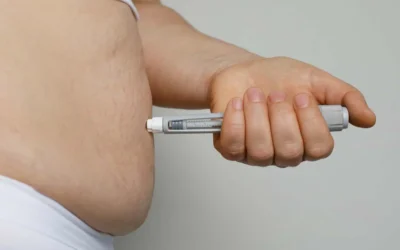In today’s high-paced world, many people experience fatigue, mood swings, weight gain, brain fog, and trouble sleeping but often, the root cause goes unnoticed: hormonal imbalance. Hormones control almost every major system in the body, from metabolism to mental health, and even a slight imbalance can throw off your energy, mood, and overall well-being.
The good news? You don’t need to rely only on medications. With the right strategies, balancing your hormones naturally is possible and can lead to a profound improvement in how you feel every day. Let’s explore science-backed hormone balance tips that can help you boost energy, elevate your mood, and enhance wellness.
What Are Hormones and Why Do They Matter?
The endocrine system’s glands create chemical messengers called hormones. They move through your bloodstream and control a number of vital processes, including:
- Metabolism
- Mood and emotions
- Sleep cycles
- Reproductive health
- Growth and development
- Energy levels
When your hormones are balanced, your body runs smoothly. But when one or more hormones become too high or too low due to stress, diet, lifestyle, or age, you may start to experience noticeable symptoms.
Common Signs of Hormonal Imbalance
Not sure if your hormones are out of sync? Some of the most common signs include:
-
Constant fatigue
-
Anxiety or depression
-
Unexplained weight gain or loss
-
Poor sleep or insomnia
-
Low libido
-
Irregular menstrual cycles or PMS
-
Hot flashes or night sweats
-
Brain fog or poor memory
-
Digestive issues
If you’re experiencing one or more of these symptoms regularly, it’s time to consider natural ways to support and restore hormone balance.
Top Hormone Balance Tips to Boost Energy, Mood & Wellness
1. Prioritize Quality Sleep
Sleep is when your body resets and regulates hormone production especially melatonin, cortisol, and growth hormone. Poor sleep disrupts these rhythms and can lead to hormonal imbalances.
Tips:
-
Aim to sleep for 7 to 9 hours at night.
-
Keep a consistent sleep schedule even on weekends.
-
Avoid screens 1 to 2 hours before bedtime to support melatonin production.
-
Create a calming bedtime routine (e.g., warm tea, reading, meditation).
2. Eat a Hormone-Friendly Diet
What you eat has a direct impact on hormone production and balance. You need to focus on a balanced diet that supports your endocrine system.
Best foods for hormone health:
- Healthy fats (avocados, olive oil, nuts, seeds)
- Cruciferous vegetables (broccoli, kale, cauliflower)
- Fiber-rich foods (chia seeds, lentils, whole grains)
- Omega-3s (salmon, walnuts, flaxseeds)
- Fermented foods (yogurt, kimchi, sauerkraut) for gut health
Avoid:
- Refined sugars
- Processed foods
- Trans fats
- Excess caffeine and alcohol
These can spike insulin and cortisol, two key hormones that affect energy and mood.
3. Manage Stress to Lower Cortisol
Chronic stress leads to prolonged cortisol production, which can suppress thyroid function, cause weight gain, and lead to mood issues and adrenal fatigue.
Stress-reducing practices:
- Meditation
-
Gentle movement like yoga or walking
-
Journaling or practicing gratitude
-
Taking regular screen breaks
-
Saying “no” to overcommitting your time
Pro tip: Adaptogenic herbs like ashwagandha and rhodiola can support the body’s stress response and help stabilize cortisol levels.
4. Support Gut Health
Your gut plays a critical role in metabolizing and eliminating excess hormones, especially estrogen. A healthy gut can reduce inflammation and promote hormonal equilibrium.
Tips for better gut health:
- Eat probiotic-rich foods (kefir, miso, sauerkraut)
- Include prebiotics (onions, garlic, bananas, oats)
- Drink plenty of water
- Limit antibiotics and unnecessary medications
- Avoid excessive sugar and artificial sweeteners
5. Exercise Regularly (But Don’t Overdo It)
Physical activity can regulate insulin, balance cortisol, and increase feel-good hormones like dopamine and serotonin. But over-exercising can cause the opposite effect, raising stress hormones and burning you out.
Best types of exercise for hormone health:
- Strength training (2 to 3x per week)
- Moderate cardio (brisk walking, cycling)
- Yoga or Pilates
- Stretching and mobility work
Even 20 to 30 minutes a day can improve hormone regulation and boost mood and energy.
6. Balance Blood Sugar
Insulin, a hormone that helps regulate blood sugar, plays a key role in your overall hormone balance. Fatigue, irritability, and cravings can result from blood sugar spikes and crashes.
Tips to stabilize blood sugar:
- Eat protein and healthy fats with every meal
- Avoid sugary snacks and drinks
- Don’t skip meals
- Limit refined carbs and white flour
- Consider eating smaller, more frequent meals
7. Get the Right Nutrients
Certain vitamins and minerals are essential for hormone production and function. If your body is missing key nutrients, hormonal imbalance is more likely.
Top nutrients for hormone support:
- Magnesium – helps regulate cortisol and supports sleep
-
Vitamin D – vital for the reproductive health
-
Zinc – supports thyroid and testosterone
-
B vitamins – key for energy, stress, and mood balance
-
Omega-3 fatty acids – reduce inflammation and support hormonal pathways
If needed, talk to a healthcare provider about supplements or get tested for deficiencies.
8. Consider Natural Hormone Support
In some cases, natural remedies and supplements can support hormone balance alongside diet and lifestyle. These include:
-
Maca root – supports energy and hormonal health
-
Vitex (Chasteberry) – regulates cycles and supports progesterone
-
Evening primrose oil – helps with PMS and skin health
-
DIM (Diindolylmethane) – supports estrogen metabolism
Before beginning a new supplement regimen, always get medical advice, particularly if you’re on medication or are treating a medical issue.
When to Seek Professional Help
While lifestyle changes can dramatically improve hormone health, sometimes professional intervention is needed. If your symptoms are persistent or worsening, consider working with:
-
An endocrinologist
-
A functional medicine doctor
-
A naturopathic doctor
-
A women’s or men’s health specialist
They may recommend hormone testing (blood, saliva, or urine) and provide a tailored hormone balance treatment in florida, like bioidentical hormone replacement therapy (BHRT) or other therapies based on your needs.
Final Thoughts
Giving your body the support it needs to operate at its best is the goal of hormone balance, not striving for perfection. When your hormones are in sync, your energy, mood, sleep, focus, and overall sense of vitality improves.
Start small. Make one or two of these hormone balance tips a part of your daily life, and over time, you’ll begin to notice powerful, positive shifts in how you feel physically, mentally, and emotionally.
Because when your hormones are balanced, you don’t just feel better you thrive.

